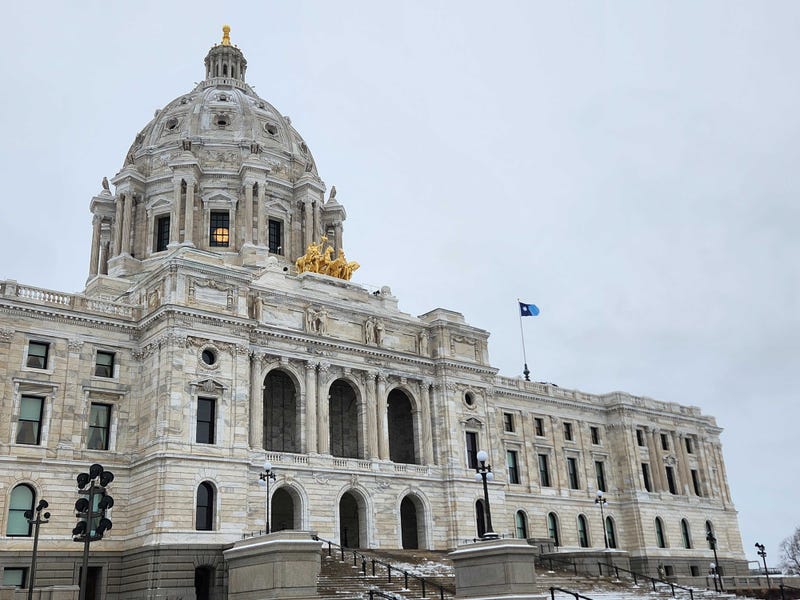
The Minnesota Legislature reconvenes Monday after a holiday break and they have a lot to accomplish before the end of session in May.
That means things will start to quiet down as far as committees are concerned and more time will be spent on the floor trying to get legislation to the governor's office.
Republican Political analyst and former Senate Majority Leader Amy Koch tells the WCCO Morning News with Vineeta Sawkar that going forward, she expects to see a limited agenda outside of passing the budget.
"I do not think that there are going to be a lot of big moves here, a lot of big bills," Koch says. "I think these budget bills are going to be pretty skinny because they're just everything that has to pass, has to be completely agreed upon and signed off, by both sides entirely. And it just - I just don't see that happening."
Lawmakers will need to finish their work in just four weeks with a tie in the House between Democrats and Republicans. There is a slim, one seat majority for Democrats in the state Senate.
And if things run can't get a done, a special session would be necessary. That puts a lot pressure - and not a lot of time - on legislators to get things done according to DFL Political analyst and former State Senator Jeff Hayden.
"A small group of people from either side could get together and then push the balance to one way or another on a particular issue, I don't know where that would be," Hayden says. "It's very risky for caucus members to go against their team. It could be some real trouble, but if there's a strong enough will to get something done and people to agree, like folks in the middle, I could see there being a caucus to pass some things."
Two of the biggest issues they still need to negotiate includes K-12 spending, and funding the state's health system. Education and health committees still have to find bipartisan agreement with those, two of the largest portions of the budget.
But on top of the finalizing and passing of bills, their biggest task is finding agreement on the mandatory two-year state budget, and resolving differences between the House and Senate about differing versions of of that budget.
WCCO political analyst Blois Olson notes that crunch time doesn't really start until May for legislators, but says they have been making progress on the budget. One hang up? Olson says the Democrats need to be less concerned with what is happening with the Trump Administration, a major talking point for both lawmakers and Governor Walz.
"I think the real question is, will the state issues get the attention they need? Democrats, they have just become very obsessed with D.C.," Olson says. "Even Minnesota legislators are just always talking about Trump in D.C. when there's issues to solve at home. The legislative session has now been nationalized and that's a little different. And I think that's gonna add to some of the polarization here in the final weeks."
The session must end May 19. The two leaders in the House - Speaker Lisa Demuth (R- Cold Spring) and House DFL Leader Melissa Hortman (Brooklyn Park) have said lawmakers are working towards resolution and getting these bills past the finish line in time.
So far, Minnesota Governor Tim Walz has been pushing for bipartisan negotiation in order to get a budget finished. He spent much of the last half of 2024 on the road campaigning as the Democratic choice for Vice President, and also spent time doing town halls across the Midwest over the last month in Republican-held districts. But at a meeting with legislative leaders last week, the governor urged them to come together on the budget.
Walz will deliver his sixth State of the State address on Wednesday from the House chambers.
